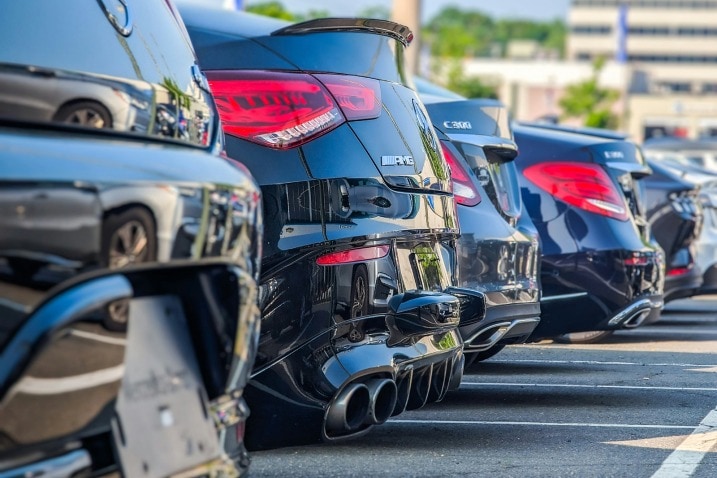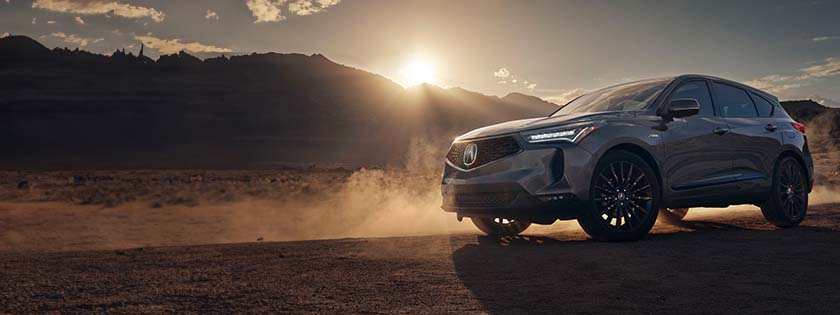The costs of wear and tear
Even if you've taken good care of your car, high-priced repairs are unavoidable, usually due to excessive wear and time itself. Rubber belts, hoses and seals dry out and crack, metal brakes warp or wear thin, and electrical parts stop working. Wear-and-tear items such as axle boots, belts and brake rotors eventually need replacement. Timing belts are a big-ticket item on high-mileage cars and typically need to be replaced at around 100,000 miles. Dealership service advisers often recommend replacing the water pump and other drive belts in the car at this point since they too are likely to be aged and because it's easier for the mechanic (and cheaper for you) to do all those components in one shot rather than come back after each part fails. Repairs such as this begin to surface between 90,000 and 120,000 miles, and a "timing belt package" can cost between $600 and $1,000.
Arguments for fixing up
Buying a new car may not be right for you due to cost or other reasons. Here are a few reasons why it might make more sense to proceed with repairs rather than dive headfirst into a new car.
It almost always costs less to repair a car than buy a new one. Although something as severe as a blown motor or a failed transmission will cost between $3,000 and $7,000 to replace at a dealership, such repairs still don't cost as much as buying a new car. That $3,000 or $7,000 would certainly make a nice down payment, but there are other costs to consider: monthly payments, increased insurance and registration costs, and depreciation. A new car typically loses an estimated 22% of its value in the first year. Your car has already taken that depreciation hit. You could always try to find a used car for that much, but keep in mind that another used car could come with its own set of issues.
You really need the car to last a while longer. Let's say you were planning on getting a new car in a year or two, but your current ride broke down earlier than expected. Repairing it now will help you stay on the road and keep you from making a hasty new car purchase. It will also give you more time to save up and get your finances in order.
You have a sentimental attachment to your car. Maybe it was your first car, a gift from a loved one, or a dream car you finally were able to purchase. For you, buying a new car would mean giving up an old friend. This is not the strongest argument for fixing it up, but it's a real one.
Arguments for buying a new car
You swore you wouldn't put another penny into your old car after that last repair. But buying a new car seems like an intimidating prospect. Here are a few reasons why buying a new car might be the way to go:
You don't want to fret about future breakdowns. Old cars can be unpredictable. Repairing a single problem with an older car doesn't guarantee that another breakdown won't happen with another part or system. If you buy a new car, its warranty means you'll have at least three years (and often far longer) before you have to worry about paying for any major repairs. Even buying a more reliable used car, such as a certified pre-owned vehicle, is enough to bring some peace of mind.
You're tired of constant trips to the repair shop. Some things don't get fixed the first time around, while others seem to need constant attention. Either way, trips to the mechanic are costing you too much money and time away from work or family.
You're fed up with your old car. Perhaps it's so beat that it embarrasses you. It rattles like crazy. Or you have to bang on the air conditioning to get it working. All these are reasons to move on. Take a look at your budget and make an honest assessment of your financial situation. Let the Edmunds suite of auto calculators do the math for you.
You want something safer. New cars have modern safety equipment. Features such as automatic emergency braking, backup cameras, and blind-spot warning are increasingly becoming standard fare on new vehicles.
When is it time to buy another car?
These are a few of the scenarios in which we'd opt for buying another vehicle:
Repairs are becoming more frequent, and the costs are hard to keep up with.
The car leaves you stranded often, putting you in a potentially dangerous situation or making you late to work.
The repair in question will cost more than half the value of the vehicle.
You'd already planned on getting something new, but your mechanic clues you in on an impending major repair on your old car. Hold off and let the next owner handle it. Just be upfront about it when it comes time to sell.
Extend the life of your car
If you're not yet faced with making the tough decision to fix up or trade in your vehicle, there are steps you can take to prevent or avoid costly repairs.
Get your new car maintained at its proper intervals. Use our maintenance guide to learn the recommended service intervals for your vehicle. Maintaining an older car means paying close attention to items that commonly break down. We recommend finding a good, reliable local mechanic as a less expensive alternative to a dealership service department.
If you're experiencing issues with your car and don't know whether things are likely to get worse, look for advice on message boards and forums for the make and model of your car. Other people have probably been down this road before. You can get a preview of the problems ahead as your vehicle ages.
Don't let the clunker decide for you
Everyone seems to have a theory on when to repair a car and when to get a new one. But you know your needs and your car's history better than anyone else, so use these tips as a guide, not gospel. Buying a new car might seem like the easy way out of a high repair bill, but depending on your circumstances, it may not be the best financial decision.
On the other hand, a car that's teetering on the edge of oblivion can keep you awake at night. It's better to part with that car on your terms rather than waiting for it to break down at exactly the wrong time. If you make the decision while the car has some value, you can sell it or trade it in, turning the cash into a down payment on your next car. If you also can take advantage of the incentives and rebates being offered on new cars today, you may find that a new car is within reach. And it's hard to put a price tag on the peace of mind that a new vehicle can bring.



 by
by 


